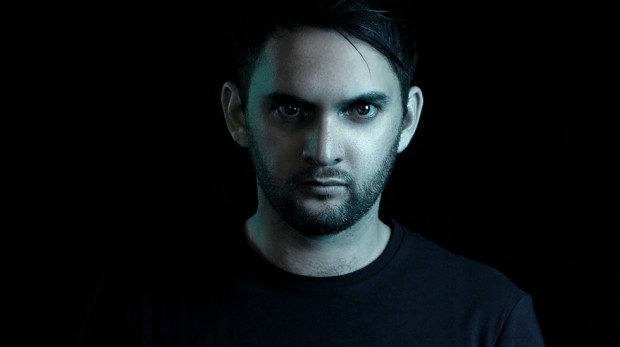 Perth bass music icon, Whetu Kay aka Phetsta is getting ready to follow in the footsteps (or flight routes) of Pendulum and ShockOne and move to London, but not before playing one more set for his hometown on Saturday, January 18 at Villa. He speaks with JOSHUA HAYES about his big move and next EP. Kay is playing his ‘Farewell Perth Set’ at Villa supported by Sydney’s Doctor Werewolf – one of a number of goodbye shows around Australia before he moves over to London in early March. It’s a move he’s been considering since he last returned from touring the UK, five or six years ago.
Perth bass music icon, Whetu Kay aka Phetsta is getting ready to follow in the footsteps (or flight routes) of Pendulum and ShockOne and move to London, but not before playing one more set for his hometown on Saturday, January 18 at Villa. He speaks with JOSHUA HAYES about his big move and next EP. Kay is playing his ‘Farewell Perth Set’ at Villa supported by Sydney’s Doctor Werewolf – one of a number of goodbye shows around Australia before he moves over to London in early March. It’s a move he’s been considering since he last returned from touring the UK, five or six years ago.
Kay cites a number of reasons for deciding to head over to London including broader touring opportunities and the opportunity to work face-to-face with labels and other artists, not to mention his regular collaborator ShockOne encouraging him.
“Every time he’s back here, he’s ‘oh come on, just move over, move over’,” Kay says. However, the main reason seems to be to push himself.
“You get a bit comfortable here, so I thought it might be time to step out of the comfort zone and jump into the deep end, I guess,” he says. “Just to… I can’t think of a better way to say it but, light a fire under my arse a bit.
He says local punters can expect a drum’n’bass-heavy set on the night. “I’ve been going right back to drum’n’bass roots a lot in the last few months, so I’m going to try and keep that vibe for most of the night,” Kay says. “I’m gonna play a few new things off this EP that I’m still trying to rush to finish before I go… There’ll be actual fresh drum’n’bass from me for the first time in about three years. I suppose (punters are) going to have to get down and hear it because it won’t be out for a few months after that, so that’ll give them all a sneak peak.”
Kay is aiming to have the currently untitled EP out mid-year. The project has been in the works for some time and like his farewell set, will have a strong drum’n’bass focus after years of working on dubstep and trap. “I needed some time off doing the drum’n’bass thing, because I’m 30 now, and I made my first drum’n’bass track when I was 16 or 17, so it kinda felt like I’d milked all the ideas out of myself and took some time off that style.
“I made a conscious decision to stop making drum’n’bass for a while, because I was feeling quite uninspired with the whole genre, just because that’s how I felt I suppose, after so long, but now it’s like, so many cool drum’n’bass tracks are coming out again, I really started getting hooked on it and thought, ‘you know what? I think it’s time I jumped back on this thing’.”
Kay first got introduced to drum’n’bass as a teenager. After moving from New Zealand to Perth as a 13-year-old and growing up a fan of metal, he was introduced to drum’n’bass at the iconic Drum Club as a 16-year-old with fake ID. “I looked up and saw people DJing and I just mistakenly, in my ignorance, thought that they were making the music live on weird machines, so I thought ‘Oh okay, I’ll go and make music too’ and I just accidentally did it,” he explains.
He cites spots like Drum Club and DJs like Greg Packer, for pushing drum’n’bass in Perth at a time when it wasn’t big in other cities as a major reason for the rich scene that has produced the likes of other Perth-raised, London-based acts like Pendulum and ShockOne.
“We were quite lucky to get people like that and get exposed to it… I’m not really sure what it was, but I found we were all ex-metal heads, so we just liked heavy music and all of us, unrelated to each other, got into the same sort of stuff. I think people with a sense of how to keep the momentum of a close-knit, small music scene were, instead of doing it willy nilly, doing it intentionally to keep it going and give it some longevity,” he reflects.
“A lot of people are very protective, especially about drum’n’bass; they can be kind of snobby about other types of music and stuff, and to outsiders it seems a bit daunting. I didn’t really get it for a while… but now I do, because it’s still going and it’s stronger than ever and it’s probably because people were protective of it and intentionally kept it going in the right way,” he continues. “That’s the best explanation I can come up with. A lot of things in the right place at the right time have come together.”